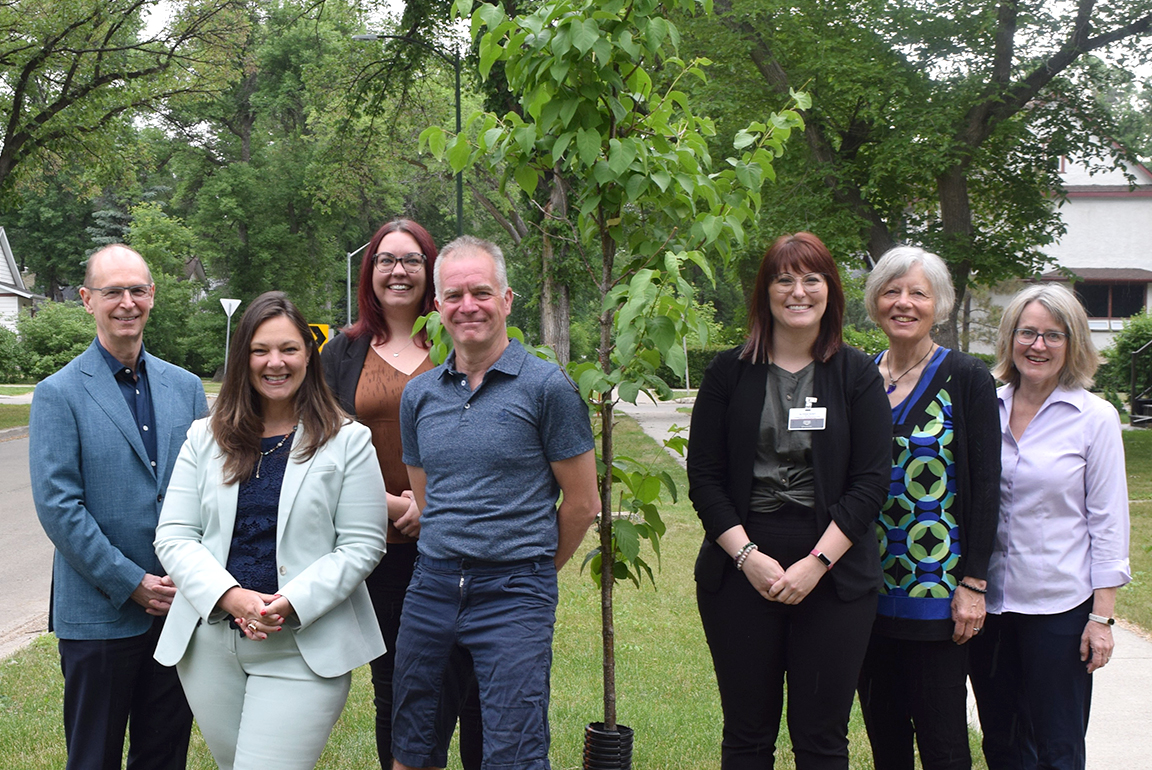How ACU members are growing urban forests with Trees Winnipeg
Trees, beautiful trees. Trees cool our streets, reduce air pollution and limit runoff. They beautify our city, increase property values and improve our quality of life.
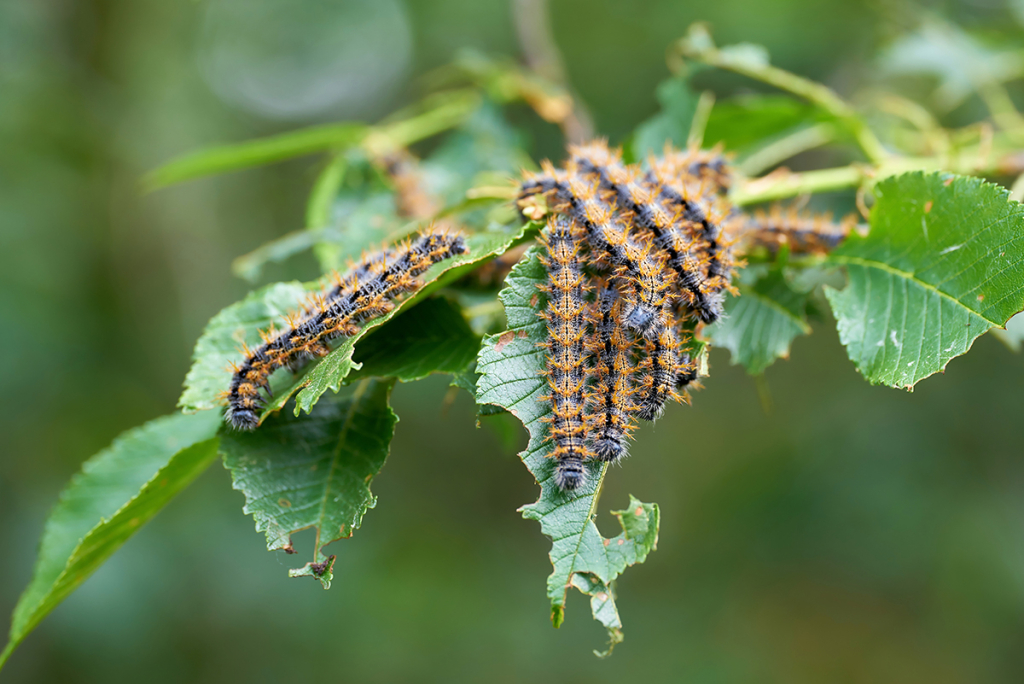
Yet Winnipeg’s urban forest is under threat from disease, invasive insects, severe storms, climate change and urban development — all of which are exacerbated by city resources being spread thin.
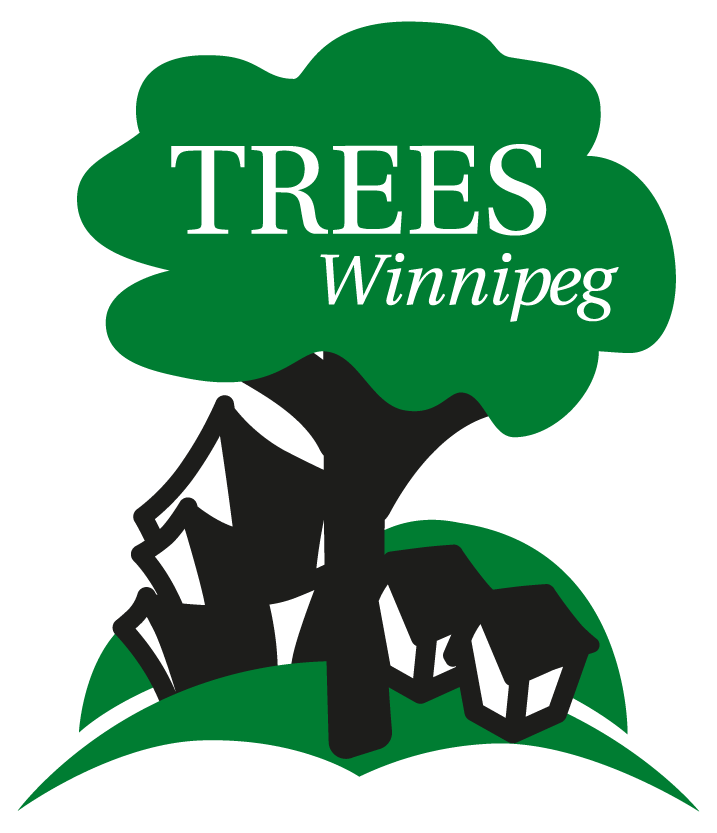
“Winnipeg is at risk of losing approximately two-thirds of its urban canopy, and is currently losing thousands of trees annually. Such losses can be attributed to a monoculture planting of the past, where only a few types of trees made up the majority of the canopy,” according to Trees Winnipeg, a non-profit founded in 1992 to save Winnipeg’s elms.
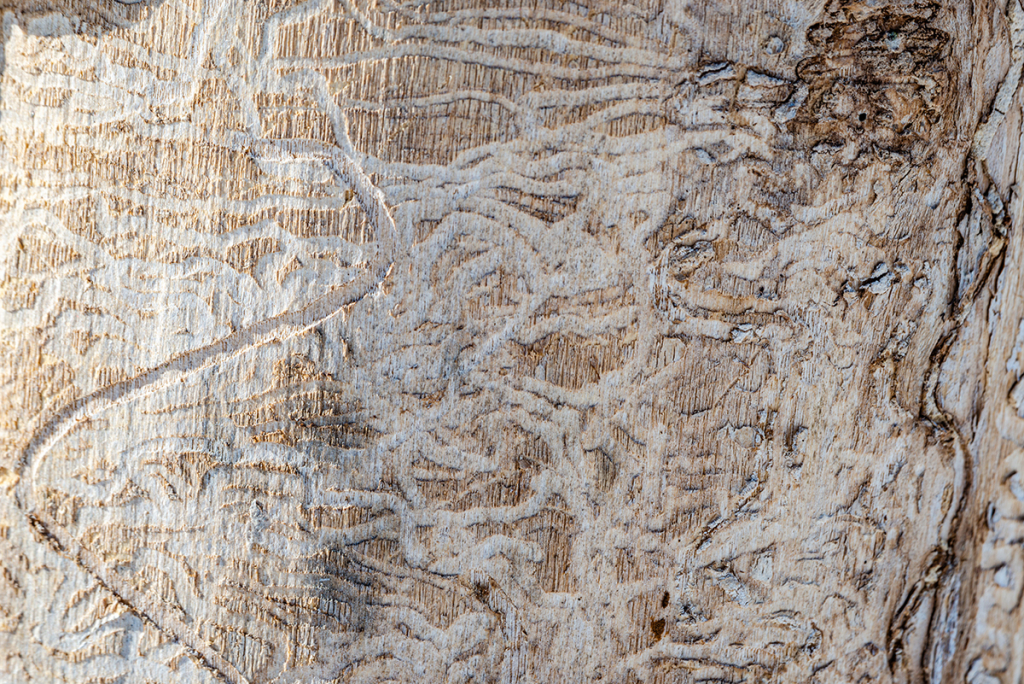
The non-profit’s mission promotes species diversity, including heritage trees, to counteract monoculture planting. For example, American elm trees make up 26% of Winnipeg’s tree canopy, while ash trees make up another 33%. But with Dutch elm disease attacking the former, and emerald ash borer invading the latter, the city is struggling to keep pace with disease management.
A commitment to sustainability
ACU’s commitment to environmental sustainability is well-documented:
- Manitoba’s first carbon-neutral credit union
- First Canadian organization to purchase Fairtrade-certified offsets
- Named one of Manitoba’s Greenest Employers for the 11th year in a row
- Globally recognized as a B Corp, a global movement of using businesses using business as force for good
- Awarded by Winnipeg Chamber of Commerce the Spirit of Winnipeg Award in the category of Energy and Environment.

This dedication to sustainability is why ACU supports environmental groups focused on climate change solutions. Last year, ACU made a donation to Trees Winnipeg for every new member who joined the credit union, for a total of $20,000. ACU is again partnering with Trees Winnipeg in 2023, and donated a further $20,000 this summer.

As a B Corp, ACU has aggressive paper reduction and recycling programs, in addition to an employee-led organic composting program. ACU members can choose to go paperless by signing in to online or mobile banking. Together with our employees, ACU members can help make a difference.
Help ACU save trees by going paperless!
To switch to digital statements, sign into mobile or online banking. Go to “settings” and choose your statement preferences. To view eStatements, click “Accounts” and then “View eStatements.”
Investing in the canopy
The financial industry in general has a reputation for paper consumption and waste, but ACU is determined not to conform to that stereotype.
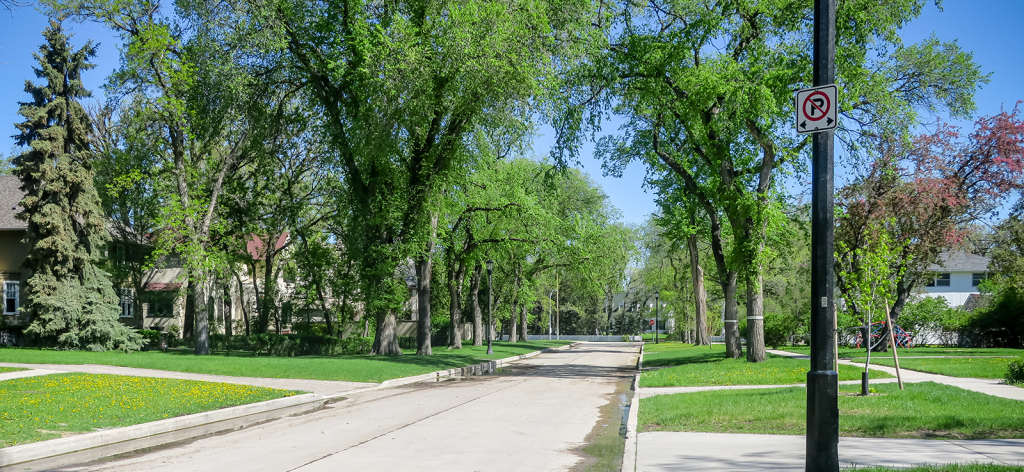
Investing in trees aligns with ACU’s commitment to reducing its use of paper
● Replacing paper statements with e-statements
● Reducing overall paper consumption internally
● A commitment to switching to 100% percent post-consumer waste (PCW) paper,
which uses no virgin fibres and has a much lower carbon footprint

“We decided that we wanted to do even more to offset our paper consumption impacts, which is why planting trees is such a good fit,” explained Dennis Cunningham, Manager of Environmental Sustainability at ACU.
Dennis elaborated on why Trees Winnipeg was a perfect partner. “Trees Winnipeg is focused on planting larger boulevard trees, as opposed to seedlings that have a lower survival rate.” The non-profit also has a two-year follow-up program, so if a tree doesn’t survive within that period, it is replaced.
Trees Winnipeg’s commitment to biodiversity ensures they plant a range of resilient species, such as maple, bur oak, pin cherry, birch and apple. Greater biodiversity more closely mimics natural environments and creates a canopy less likely to succumb to a single pathogen.
Investing in communities
Dennis appreciates the non-profit’s approach to community as well. “Trees Winnipeg is also helping to address inequity by working with homeowners, neighbourhood associations and community groups that don’t have the resources to access and plant trees themselves.”
ACU’s 2022 donation saw about 2,000 trees planted across Winnipeg, including in underserved neighbourhoods. The funds also helped build an “urban forest” at St. John’s Community School.
“It’s linking students to nature in a different way, going from a hardscape to something that’s greener,” said Dennis. “Some of the schools here are also de-paving, a great initiative that involves lifting up the pavement and putting down trees and other natural landscapes where kids can play.”
The funds from 2023 have been used towards school tree plantings at 14 Winnipeg School Division schools this fall. ACU has contributed to funding both the purchase and maintenance of these trees, along with funds from the mayor’s office.
The donation was also used to purchase trees for the North End Community Tree Event at Luxton Community Centre in September. A spaghetti supper was held alongside the tree sale.

Trees Winnipeg is calling on all Winnipeggers to help plant a million new trees before the city’s population reaches one million people.
Find out more about Trees Winnipeg and ACU’s environmental initiatives.
Up Next
Sustainability: How ACU is turning words into action
A hand holding a seedling
For ACU, Pride radiates outward
“I’ve always wanted to instill a change in the world for the better,” says Cristina McCourt, Financial Account Manager Trainee and member of the ACU Pride Committee, an employee-led resource…
Royal Aviation Museum travels to its final destination—with ACU’s help
A stone’s throw from the main terminal of Winnipeg Richardson International Airport you’ll find one of Canada’s hidden gems, where the airplanes are a little more exciting than your typical…
